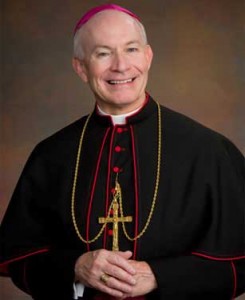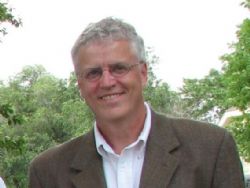[powerpress]
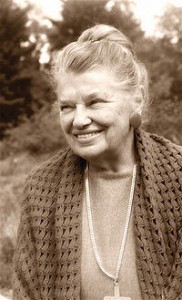
“Faith is the father of love, faith is the father of hope also, and its in faith, and faith alone, that we can plunge ourselves, like in a warm sea, to swim the strange currents that will come our way.”
On the beginning of unity “…you become a prayer…you contemplate God, because He always contemplates you…see how simple it is?”
To learn more about Catherine Doherty visit www.madonnahouse.org
Tags: alone, Catherine Doherty, faith, father, love
This entry was posted on Monday, December 22nd, 2014 at 8:42 pm
You can follow any responses to this entry through the RSS 2.0 feed.
The Living Flame Of Love
 Songs of the soul in the intimate communication of loving union with God.
Songs of the soul in the intimate communication of loving union with God.
[powerpress]
1. O living flame of love
that tenderly wounds my soul
in its deepest center! Since
now you are not oppressive,
now consummate! if it be your will:
tear through the veil of this sweet encounter!
2. O sweet cautery,
O delightful wound!
O gentle hand! O delicate touch
that tastes of eternal life and pays every debt!
and pays every debt!
In killing you changed death to life.
3. O lamps of fire! in whose splendors
the deep caverns of feeling,
once obscure and blind,
now give forth, so rarely, so exquisitely,
both warmth and light to their Beloved.
4. How gently and lovingly
you wake in my heart,
where in secret you dwell alone;
and in your sweet breathing,
filled with good and glory,
how tenderly you swell my heart with love.
Here is a fine teaching from Fr. Barron:

My Soul is a Candle
My soul is a candle that burned away the veil;
only the glorious duties of light I now have.
The sufferings I knew initiated me into God.
I am a holy confessor for men.
When I see their tears running across their cheeks
and falling into
His hands,what can I say to their great sorrow
that I too haveknown.
The soul is a candle that will burn away the darkness,
only the glorious duties of love we will have.
The sufferings I knew initiated me into God.
only His glorious cares
I now have.
Tags: alone, darkness, heart, love, my soul is a candle, mystic, mystic of the Church, poems of john of the cross, songs of the soul, st. john of the cross, sufferings, the living flame of love
This entry was posted on Saturday, December 14th, 2013 at 12:33 am
You can follow any responses to this entry through the RSS 2.0 feed.
[powerpress]

Born: 310 AD,
Died: May 2, 367 AD
For more on St. Hilary of Poitiers and his teachings
Hilary of Poitiers
-Â On the Councils, or the Faith of the Easterns
-Â On the Trinity
-Â Homilies on the Psalms
To sum up the essentials of his doctrine, I would like to say that Hilary found the starting point for his theological reflection in baptismal faith. In De Trinitate, Hilary writes: Jesus
“has commanded us to baptize in the name of the Father and of the Son and of the Holy Spirit (cf. Mt 28: 19), that is, in the confession of the Author, of the Only-Begotten One and of the Gift. The Author of all things is one alone, for one alone is God the Father, from whom all things proceed. And one alone is Our Lord Jesus Christ, through whom all things exist (cf. I Cor 8: 6), and one alone is the Spirit (cf. Eph 4: 4), a gift in all…. In nothing can be found to be lacking so great a fullness, in which the immensity in the Eternal One, the revelation in the Image, joy in the Gift, converge in the Father, in the Son and in the Holy Spirit” (De Trinitate 2, 1). God the Father, being wholly love, is able to communicate his divinity to his Son in its fullness. I find particularly beautiful the following formula of St Hilary: “God knows not how to be anything other than love, he knows not how to be anyone other than the Father. Those who love are not envious and the one who is the Father is so in his totality. This name admits no compromise, as if God were father in some aspects and not in others” (ibid., 9, 61).
For this reason the Son is fully God without any gaps or diminishment. “The One who comes from the perfect is perfect because he has all, he has given all” (ibid., 2, 8). Humanity finds salvation in Christ alone, Son of God and Son of man. In assuming our human nature, he has united himself with every man, “he has become the flesh of us all” (Tractatus super Psalmos 54, 9); “he took on himself the nature of all flesh and through it became true life, he has in himself the root of every vine shoot” (ibid., 51, 16). For this very reason the way to Christ is open to all – because he has drawn all into his being as a man -, even if personal conversion is always required: “Through the relationship with his flesh, access to Christ is open to all, on condition that they divest themselves of their former self (cf. Eph 4: 22), nailing it to the Cross (cf. Col 2: 14); provided we give up our former way of life and convert in order to be buried with him in his baptism, in view of life (cf. Col1: 12; Rom 6: 4)” (ibid., 91, 9).
Fidelity to God is a gift of his grace. Therefore, St Hilary asks, at the end of his Treatise on the Trinity, to be able to remain ever faithful to the baptismal faith. It is a feature of this book: reflection is transformed into prayer and prayer returns to reflection. The whole book is a dialogue with God.
I would like to end today’s Catechesis with one of these prayers, which thus becomes our prayer:
“Obtain, O Lord”, St Hilary recites with inspiration, “that I may keep ever faithful to what I have professed in the symbol of my regeneration, when I was baptized in the Father, in the Son and in the Holy Spirit. That I may worship you, our Father, and with you, your Son; that I may deserve your Holy Spirit, who proceeds from you through your Only Begotten Son… Amen” (De Trinitate 12, 57).
For more visit Vatican.va
Dr. Matthew Bunson, Senior Fellow of the St. Paul Center for Biblical Theology, is one of the United States’ leading authorities on the papacy and the Church.
His books include: The Encyclopedia of Catholic History; The Encyclopedia of Saints; Papal Wisdom; All Shall Be Well; Encyclopedia of the Roman Empire; and The Angelic Doctor: The Life and World of St. Thomas Aquinas; The Pope Encyclopedia; We Have a Pope! Benedict XVI, the first Catholic biography of the Holy Father in the English language; the Encyclopedia of U.S. Catholic History; Pope Francis. Â His also the editor of OSV’s “The Catholic Answer” magazine.
Tags: alone, Church, matthew bunson, work
This entry was posted on Friday, September 13th, 2013 at 9:36 am
You can follow any responses to this entry through the RSS 2.0 feed.
[powerpress]
Msgr. Esseff reflects on the feast of the Transfiguration. Â He asks us to take time and prayerfully reflect and ask God to show you those moments of “transfiguration” in our lives.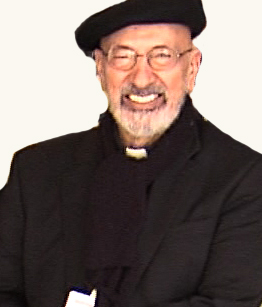
Gospel                LK 9:28B-36
and went up a mountain to pray.
While he was praying his face changed in appearance
and his clothing became dazzling white.
And behold, two men were conversing with him, Moses and Elijah,
who appeared in glory and spoke of his exodus
that he was going to accomplish in Jerusalem.
Peter and his companions had been overcome by sleep,
but becoming fully awake,
they saw his glory and the two men standing with him.
As they were about to part from him, Peter said to Jesus,Â
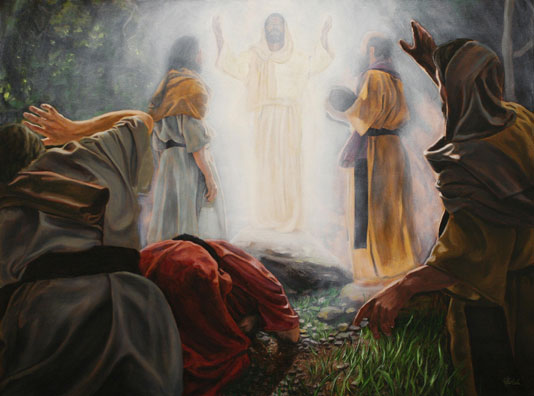
“Master, it is good that we are here;
let us make three tents,
one for you, one for Moses, and one for Elijah.â€
But he did not know what he was saying.
While he was still speaking,
a cloud came and cast a shadow over them,
and they became frightened when they entered the cloud.
Then from the cloud came a voice that said,
“This is my chosen Son; listen to him.â€
After the voice had spoken, Jesus was found alone.
They fell silent and did not at that time
tell anyone what they had seen.
Tags: alone, Jesus, John Esseff, transfiguration
This entry was posted on Tuesday, August 6th, 2013 at 6:17 am
You can follow any responses to this entry through the RSS 2.0 feed.
[powerpress]
Archbishop Lucas offers insights on the US Catholic Catechism for Adults Chapter 29:
Intentional euthanasia, sometimes called mercy killing, is murder. Regardless of the motives or means, euthanasia consists of putting to death those who are sick, are disabled, or are dying. It is morally unacceptable. The emergence of physician-assisted suicide, popularized by the right-to-die movement, seeks to legalize what is an immoral act. Its advocates plan to achieve this on a state-by-state basis.
Suicide is gravely sinful whether committed alone or aided by a doctor. Serious psychological disturbances, anxiety, fear of suffering, or torture can diminish the responsibility of the one committing suicide. The question is often asked whether persons who have committed suicide receive eternal salvation. Although suicide is always objectively sinful, one “should not despair of the eternal salvation of persons who have taken their own lives. By ways known to him alone, God can provide the opportunity for salutary repentance. The Church prays for persons who have taken their own lives†(CCC, no. 2283). The pastoral care of family and friends of those who have taken their own lives is an important focus for the Church’s healing and compassionate ministry.
Catholic moral tradition has always taught that we can discontinue medical procedures that are burdensome, extraordinary, and disproportionate to the outcome. However, respect for every human being demands the ordinary treatment of the dying by the provision of food, water, warmth, and hygiene. Ordinary treatment is always a moral requirement.
There is also extraordinary treatment. The Church recognizes that some medical treatment may not provide benefits commensurate with the risks of certain medical procedures. Extraordinary medical treatment may not be morally required and can even cease in certain cases, depending on the benefits to the sick person and the burdens it will or may impose. For example, in instances when a person has been declared brain-dead, the patient can be disconnected from mechanical devices that sustain breathing and the heart since there is little hope of the person’s recovery.
United States Conference of Catholic Bishops (USCCB) (2012-04-02). United States Catholic Catechism for Adults (Kindle Locations 5696-5710). United States Conference of Catholic Bishops (USCCB). Kindle Edition.
The Most Reverend George J. Lucas leads the Archdiocese of Omaha.Â
For other episodes in the visit our Archbishop George Lucas page
This programs is based on:
More information can be found here.
We wish to thank the USCCB for the permissions granted for use of  relevant material used in this series.
[ezcc]
Tags: alone, Church, family, USCCB
This entry was posted on Monday, June 17th, 2013 at 3:44 pm
You can follow any responses to this entry through the RSS 2.0 feed.
[powerpress] 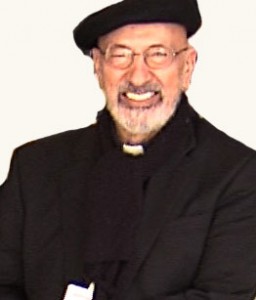 Msgr. Esseff discusses the great love the Blessed Virgin Mary has for all of us. He
Msgr. Esseff discusses the great love the Blessed Virgin Mary has for all of us. He 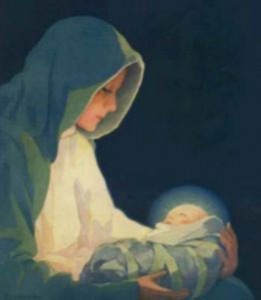 shares his personal experiences with the Blessed Mother and a special encounter with her love, especially through the gift of her Son. He encourages us to remember that we are never alone.
shares his personal experiences with the Blessed Mother and a special encounter with her love, especially through the gift of her Son. He encourages us to remember that we are never alone.
Tags: alone, blessed mother, blessed virgin mary, catholic, catholic podcast, catholic prayer, cathollc spirituality, John Esseff, love, msgr. john esseff, personal experiences
This entry was posted on Thursday, December 22nd, 2011 at 9:14 am
You can follow any responses to this entry through the RSS 2.0 feed.
Heart of Hope Part 2 – The agony of emotional suffering and opportunities for deeper union with Jesus; the reason for pastoral ministry
[powerpress = “deacon-james-keating”]
Deacon James Keating, PhD, the director of Theological Formation for the Institute for Priestly Formation, located at Creighton University, in Omaha, is making available to â€Discerning Hearts†and all who listen, his series of programs entitled “The Heart of Hopeâ€.
This extraordinarily popular series explores the work of suffering in the Christian life and how God can use it to transform the heart of the individual and the world. 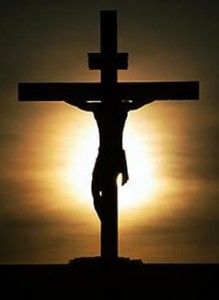
The “Heart of Hope† tackles a very tough subject…the gift of suffering in the Christian life. Deacon Keating guides us well.
For more information on the “Institute of Priestly Formation†and for other material available by Deacon Keating, just click here
Don’t forget to pickup a copy of “Communion with Christ†, it is one of the best audio sets on prayer…ever!
Check out Deacon Keating’s “Discerning Heart†page
Tags: abandonment, agony, alone, catholic, catholic podcast, catholic prayer, cathollc spirituality, creighton university, Deacon James Keating, Deacon Keating, discerning heart, hearts, institute for priestly formation, isolation, james keating, Jesus, lonliness, parish, PhD, suffering, theological formation
This entry was posted on Thursday, September 15th, 2011 at 3:38 am
You can follow any responses to this entry through the RSS 2.0 feed.

